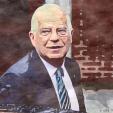India, a key partner for Europe

India can help Europe save multilateralism
In this respect, India can obviously become an important partner for us with its almost 1.4 billion inhabitants, its economic dynamism, particularly in sectors such as information technology or pharmaceuticals, and its growing international role, not only regionally but also increasingly globally.
In January this year, my first visit outside the European Union in my capacity as High Representative took me to India. I met with India’s Prime Minister Narendra Modi and the Ministers of External Affairs and of Defence and addressed the annual Raisina Dialogue at its closing ceremony. We discussed global uncertainties, growing US-China tensions and increasing assertiveness from China.
Climate change, peace, maritime security, digitalisation, water management, renewable energy or disaster risks… India and Europe converge on a great number of issues
The pandemic has accelerated and strengthened those trends. Covid-19 requires a global response, international cooperation and solidarity. With our Indian partners, we discussed on Wednesday vaccine development, strengthening multilateral institutions, and a swift and green global economic recovery. The Summit was also the occasion for both sides to discuss EU-India bilateral relations and regional and security issues.
Our positions converge on a great number of multilateral issues, such as climate change, peace and stability, maritime security, digitalisation, water management, renewable energy or disaster risk reduction, as demonstrated by the Summit Joint Statement.
India is acknowledging that the EU is a key political partner, and we believe India has an important global role to play
India is increasingly acknowledging that the EU is becoming a key political partner, and we believe India has an important global role to play; this is why we welcomed its recent election as non-permanent member of the UN Security Council for 2021-22 and India’s Presidency of the G20 in 2022.
Work together to reform the WTO
In this context, one of our urgent tasks is to work together to reform the WTO, which is under increasing strain if its Members do not genuinely come together to shore it up. However, we need also to improve our bilateral trade relations. During the Summit we agreed on establishing a High Level Dialogue to move forward on an investment protection and trade agreement.
During my visit to New Delhi in January, I made it clear that the EU intended to forge closer ties with India, as part of a strategy of working with like-minded partners to renew multilateralism. Covid-19 fallout reinforces my conviction that this should be one of the top priorities of the European Union in the years ahead.
MORE FROM THE BLOG

“A Window on the World” – by HR/VP Josep Borrell
Blog by Josep Borrell on his activities and European foreign policy. You can also find here interviews, op-eds, selected speeches and videos.
